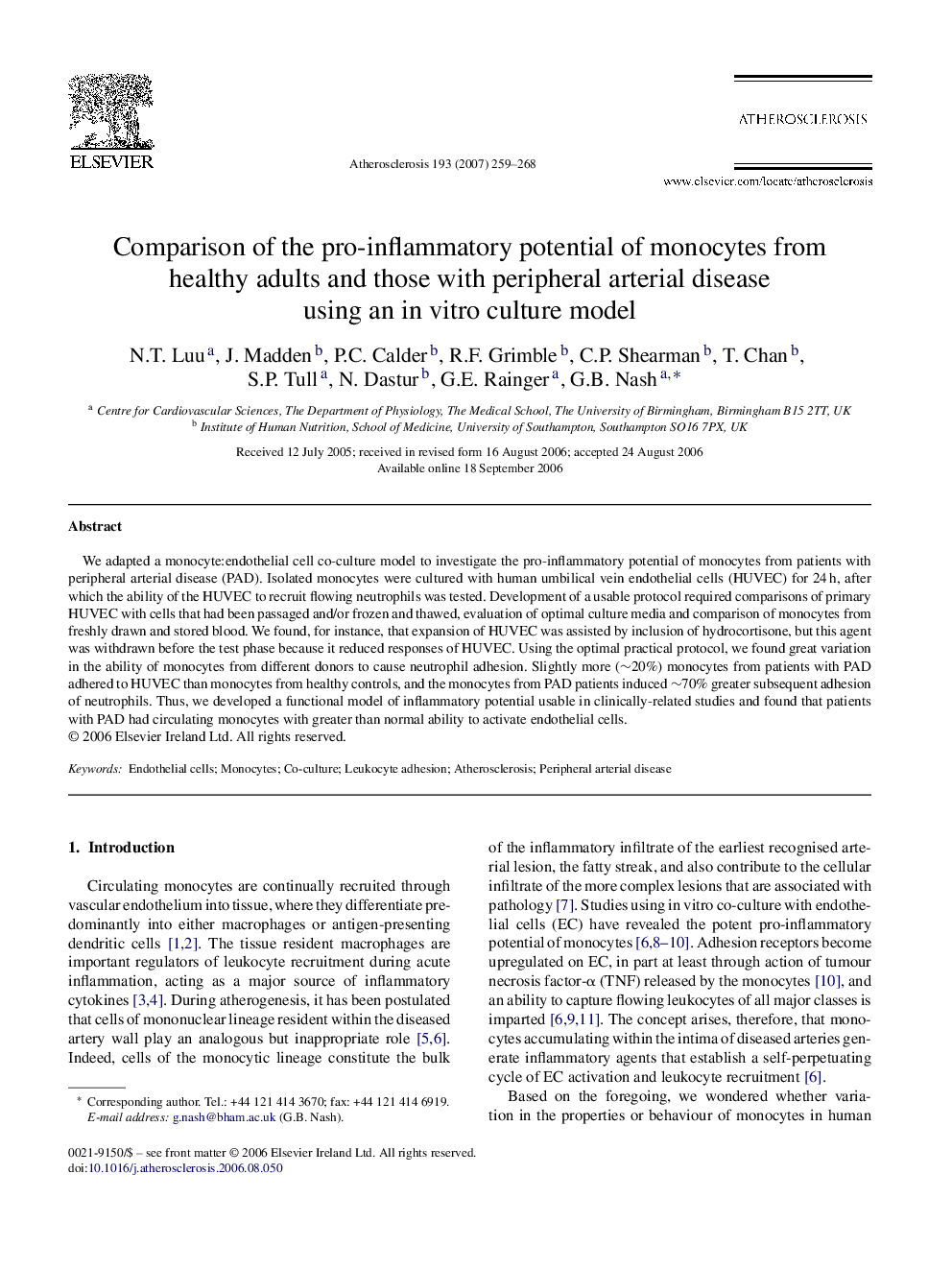| Article ID | Journal | Published Year | Pages | File Type |
|---|---|---|---|---|
| 2894346 | Atherosclerosis | 2007 | 10 Pages |
We adapted a monocyte:endothelial cell co-culture model to investigate the pro-inflammatory potential of monocytes from patients with peripheral arterial disease (PAD). Isolated monocytes were cultured with human umbilical vein endothelial cells (HUVEC) for 24 h, after which the ability of the HUVEC to recruit flowing neutrophils was tested. Development of a usable protocol required comparisons of primary HUVEC with cells that had been passaged and/or frozen and thawed, evaluation of optimal culture media and comparison of monocytes from freshly drawn and stored blood. We found, for instance, that expansion of HUVEC was assisted by inclusion of hydrocortisone, but this agent was withdrawn before the test phase because it reduced responses of HUVEC. Using the optimal practical protocol, we found great variation in the ability of monocytes from different donors to cause neutrophil adhesion. Slightly more (∼20%) monocytes from patients with PAD adhered to HUVEC than monocytes from healthy controls, and the monocytes from PAD patients induced ∼70% greater subsequent adhesion of neutrophils. Thus, we developed a functional model of inflammatory potential usable in clinically-related studies and found that patients with PAD had circulating monocytes with greater than normal ability to activate endothelial cells.
